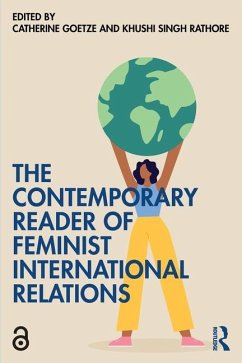The Contemporary Reader of Feminist International Relations is a comprehensive volume for contemporary scholarship on feminist international relations and theory, showcasing research from a range of international scholars.
This collection explores the state of women's and LGBTQi+ rights in the world, feminist contributions to peace, women's and feminist approaches to diplomacy and feminist theorizing on borders, security and the politics of care in the world. It also features interviews and short essays by trailblazers of feminist international relations. The book is composed of six parts, and features case studies, examples, in-depth field research, and conceptual debates prominently in all chapters. Further readings complement the reader's guidance.
The Contemporary Reader of Feminist International Relations is an ideal study companion for students and scholars in Women's and Gender Studies, International Relations, Politics, Peace Studies, and Security Studies.
Chapters 31 and 33 of this book is freely available as a downloadable Open Access PDF at http://www.taylorfrancis.com under a Creative Commons Attribution (CC BY) 4.0 license.
This collection explores the state of women's and LGBTQi+ rights in the world, feminist contributions to peace, women's and feminist approaches to diplomacy and feminist theorizing on borders, security and the politics of care in the world. It also features interviews and short essays by trailblazers of feminist international relations. The book is composed of six parts, and features case studies, examples, in-depth field research, and conceptual debates prominently in all chapters. Further readings complement the reader's guidance.
The Contemporary Reader of Feminist International Relations is an ideal study companion for students and scholars in Women's and Gender Studies, International Relations, Politics, Peace Studies, and Security Studies.
Chapters 31 and 33 of this book is freely available as a downloadable Open Access PDF at http://www.taylorfrancis.com under a Creative Commons Attribution (CC BY) 4.0 license.








